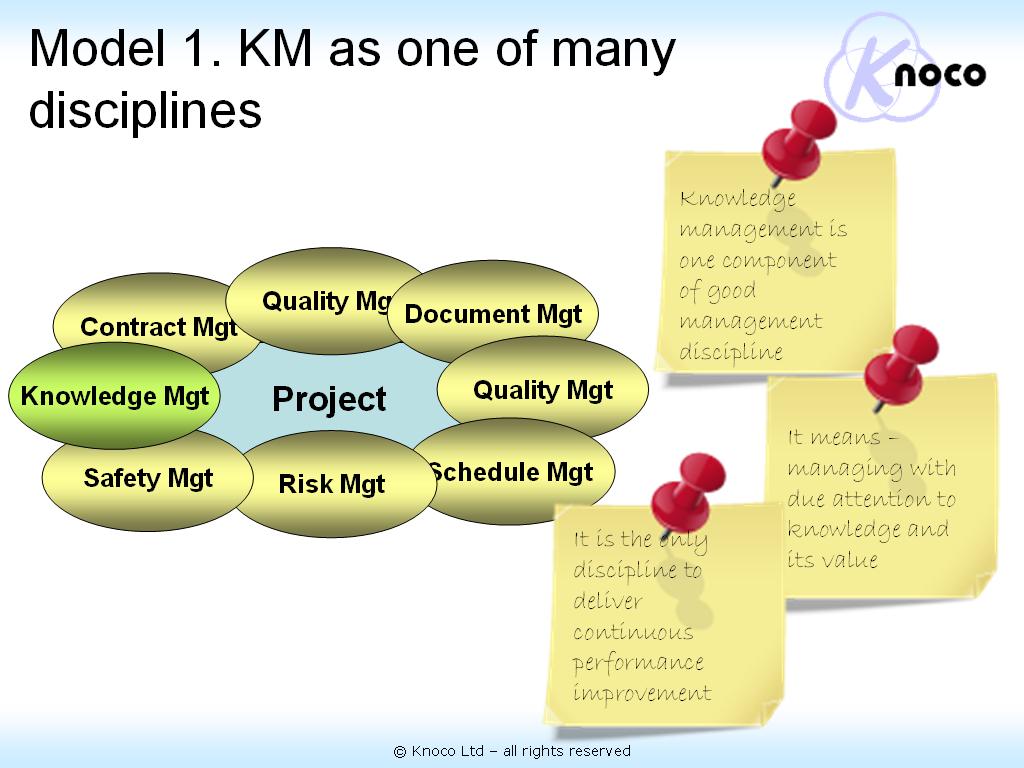Is Knowledge Management unique, or is it one discipline among many?

There are two opposing views of KM.
The first view is that Knowledge Management is a unique discipline, unlike any other.
The second view is that KM is one management discipline among many. I would like to explain and justify this second view.
Knowledge Management represents a way of managing work, paying due attention to the value and effect of an intangible (namely, knowledge). And it's not the only management discipline which deals with intangibles. Risk management, Quality management, customer relationship management, brand management, reputation management, security management, safety management - all deal with intangibles. For me, the closest of these to KM is risk management. Knowledge and risk are allied - you reduce risk through application of knowledge. Knowledge of risks and how to handle them is some of the most valuable operational knowledge.
At a recent knowledge management training course, I presented this view of KM as one of many management disciplines. I was speaking in the context of project management, and I suggested that KM could be added to the list of management sub components of project management, and therefore added the accountability of the project manager. But after the talk, a young man came to see me and argued very strongly that I was completely wrong, and that knowledge management is unique, and cannot be bundled with other disciplines, as it is quite unlike anything else.
I suppose in a way he is correct - there are some unique elements in KM - but in another way I would rather not treat KM as a standalone. The great value of treating KM as "one among equals" - as another component of good management discipline along with risk management, safety management and the others - is that you can then place it within the same governance framework as you do the other disciplines. You can position it in the same structures and expectations. You can review it using the same review processes (the stage reviews of the project management framework, for example). In other words, you can embed it easily within "normal work".




1 comment:
Chaps: KM? Stand-alone? No way. Done right, it pervades every aspect of the enterprise, including the way every employee does their job. In that respect, it's very much like TQM. But the diagram you use is too 2-dimensional. KM underpins each of the other nodes - or should. Perhaps the ideal graphic would congruent nodes... not very illuminating, or interesting to the fly-by reader, but the thought is - or should be.
Post a Comment